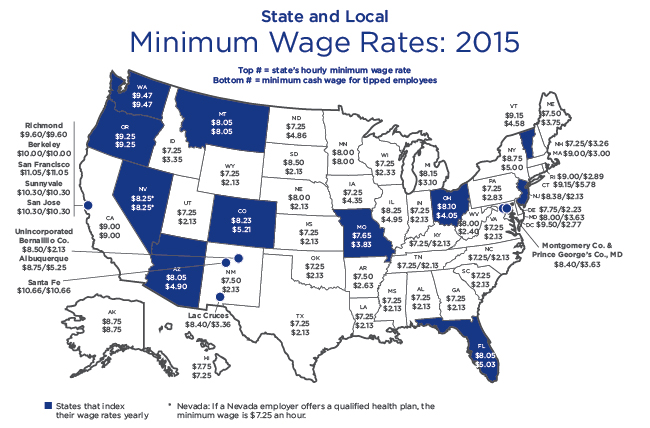
[전문 + mp3] / [받아쓰기]
Workers and employers around the world argue over the issue of a minimum wage. Workers say they want to receive a minimum “living” wage that permits them to meet the most basic needs of life such as food, clothing and shelter. Employers say that high labor costs will affect their company’s profitability and its value to shareholders. And governments worry that they will lose trade, investment and tax revenues if labor costs within their borders go too high.
* minimum wage = 최저 임금/ permit = 가능하게 하다(허락하다)/ basic needs = 기본적 욕구(수요)/ affect = ~에 영향을 미치다/ within one's borders = ~의 영토(지역) 내에
In 2014, President Barack Obama signed an executive order raising the U.S. federal minimum hourly wage to $10.10. The order applies only to new or replacement federal contracts. However, for most jobs subject to the federal minimum wage, the rate remains $7.25 an hour. But, the federal minimum wage does not apply to everyone for a number of reasons. Each state has its own labor laws, which can affect the minimum wage workers can receive. In early June, the Los Angeles City Council approved a minimum wage measure. The plan will increase that city’s lowest wage to $15 an hour by 2020. Under the plan, the minimum wage in the second largest American city will increase yearly for five years. Small businesses and non-profit organizations will have an extra year to reach the $15-an-hour pay level.
* executive order = (미국) 대통령 명령; 행정 명령/ replacement = 교체, 대체/ (be) subject to ~ = ~의 적용을 받다, 대상이다/ a number of ~ = 다수의, 얼마의 ~/ measure = 조치(정책)












